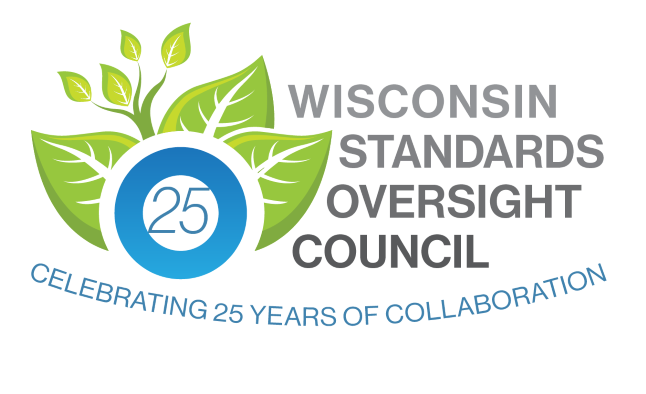
MADISON – 2021 marks the 25th anniversary for the Wisconsin Standards Oversight Council (SOC), a collective partnership among conservation agencies to develop and maintain Wisconsin’s technical standards for soil and water conservation practices. The unique partnership in SOC ensures uniform, science-based technical standards to support a wide variety of federal, state and local conservation programs.
Prior to the creation of SOC, technical standards were developed internally and without broader participation, which often resulted in a variety of challenges. In 1996, the various partners established the Standards Oversight Council to better coordinate the development and revision of technical standards related to agricultural and urban stormwater runoff practices.
“The underlying idea of SOC is that it is practical and efficient for stakeholders to collaborate in service of developing functional and sensible standards,” said WI Land+Water Executive Director Matt Krueger. “It is truly a model of good governance, and is a program with which WI Land+Water is proud to be affiliated.”
SOC’s 25th anniversary—and the importance of collaboration—was reinforced by renewing a Memorandum of Agreement in 2020, signed by conservation leaders in Wisconsin including Natural Resources Conservation Service (NRCS), Wisconsin Dept. of Agriculture, Trade, and Consumer Protection (DATCP), Wisconsin Dept. of Natural Resources (DNR), UW-Madison Division of Extension, Wisconsin Dept. of Transportation (WisDOT), and WI Land+Water.
“The Standards Oversight Council creates partnerships between stakeholders that may not have otherwise been established,” said Shannon Haydin, Storm Water Runoff Section Chief with DNR. “Together, government agencies, such as the Department of Natural Resources, and its external partners, oftentimes within the regulated community, create technical standards that protect the state’s natural resources and provide open dialogue and transparency in their development. Through this process everyone gets a seat at the table.”
SOC convenes a variety partners to help develop the standards so they meet both the statewide needs and the needs in specific geographic locations. Bringing interested parties and technical experts together early in the process ensures that the final standards will not only meet the conservation goals, but can be also be readily implemented by landowners.
“NRCS is pleased to foster a long-term relationship with WI Land+Water and other partners in supporting the SOC. Collaboration through the SOC is key in developing and updating technical standards crucial to soil and water conservation. Each of these partners exhibit unique expertise, that when leveraged together, produces an outcome of a well-researched, science-driven standard that sets the basis for NRCS conservation practices and leads to protecting our natural resources for generations,” said Angela Biggs, NRCS State Conservationist.
SOC uses teams of agency and private sector experts to reach consensus among different interests. This results in technical standards that are science-based, usable, and effective. Extensive public participation in the SOC process has led to high quality standards that protect our natural resources, as well as the taxpayer, by establishing criteria for projects seeking permitting or public funding.
“Soil and water health is a key part of the foundation of Wisconsin’s $104.8 billion agriculture industry. For 25 years, the Standards Oversight Council has been a critical partnership that helps guide and support the development and implementation of conservation practices across the state, including on working farmland. DATCP is proud to participate in this effort to ensure the responsible use of our state’s land and water resources,” said DATCP Secretary-designee Randy Romanski.
In addition to the team process, the standards with more substantial proposed edits are also opened for expert and public review. In the 5 technical standards released for review in 2020, the expert and public review processes resulted in 397 comments from 53 reviewers. In the past 5 years combined, SOC received over 1600 comments on technical standards released for review, resulting in improvements to those standards.
For more information on how this collaborative process works, and how the public can stay informed about future technical standard work and participate in future SOC processes, visit the SOC website.

